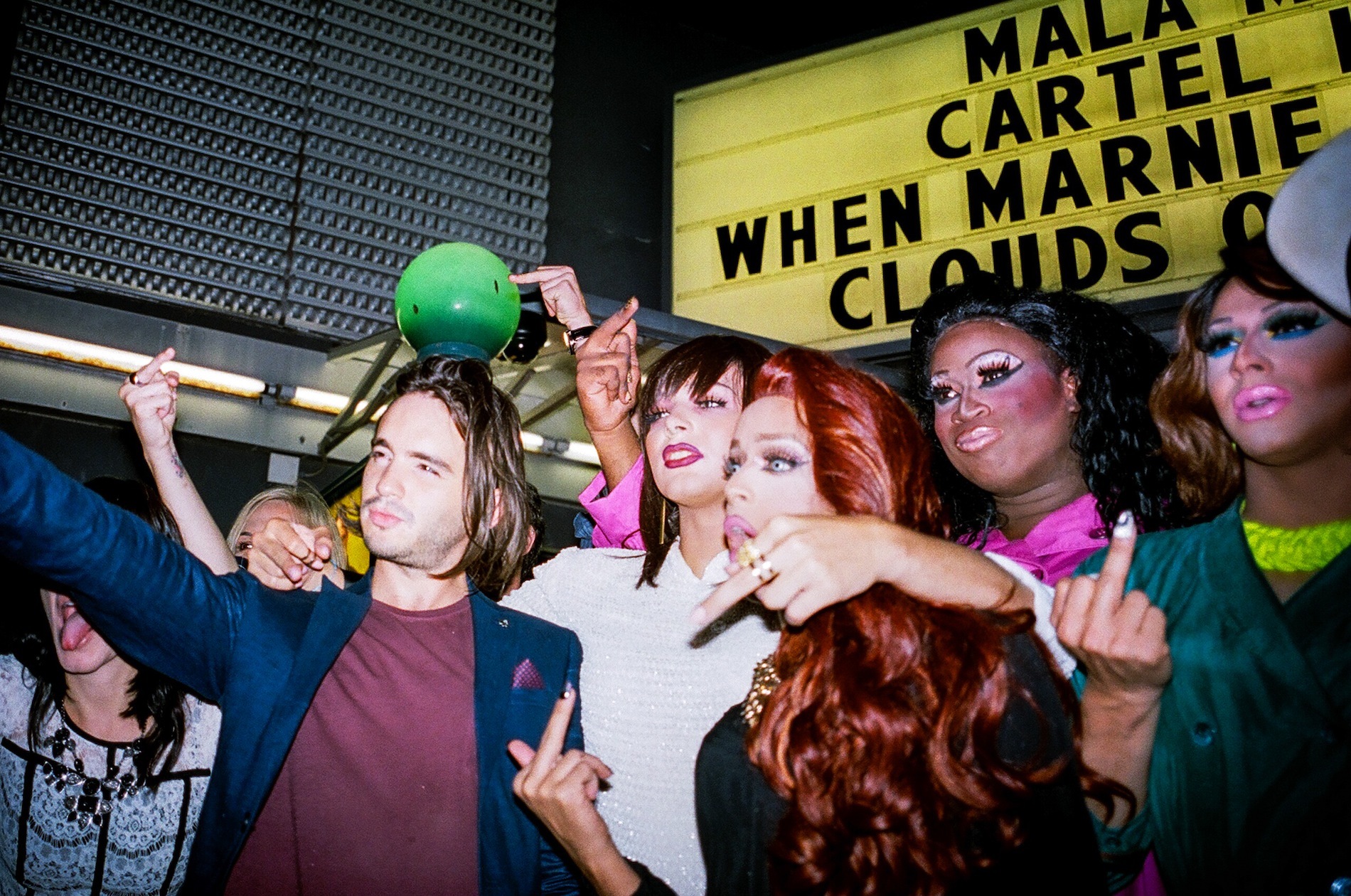Mala Mala, a new documentary from directors Antonio Santini and Dan Sickles, chronicles the glam, gritty, and often gut-wrenching everyday lives of Puerto Rico’s brilliant trans and drag scene, following its fierce leaders on their campaign for equality in the workplace. Starring a diverse cast of characters, from 65-year-old hairstylist and gender reassignment surgery pioneer Soraya (who wears fabulous sun hats and just completed her first memoir), to handsome chef Paxx navigating the uncharted territory of being a nonopttransboi/genderqueer on an island without legal access to the Testosterone hormone, to drag performers and sex workers and everyone in between, Mala Mala is a colorful celebration of fearless individuality, gender fluidity, and the perseverance of a bold group of people fighting for their rights to live and work as human beings.
We talk to the film’s directors about the gorgeous power-players of Puerto Rico’s transliberation movement and the essence of being a man or a woman (hint: it’s not about tits or muscles). And check out Daniel Arnold’s gorgeous photos of the queens and cast getting ready for the film’s New York premiere.
What inspired you to make this documentary?
Antonio Santini: It all started with Maggie McMuffins. She was competing in a drag pageant in Texas, running around the club hitting people on the head with a frying pan with a smile and googly eyes glued on to it. She got booed off and we ran after to tell her she was our favorite and the next day we drove to her house to hang out. Outside it was a really fancy quiet neighborhood but inside the house things were more chaotic. Maggie was in her forties and she’d just decided to transition into female. Her 9 year old daughter was there too, but we weren’t allowed to meet her because Maggie didn’t know how to explain to her what was going on. She left her job at Dell soon after that. Her co-worker sexually harassed her and no one supported her. Her transition forced her to part from everything she had come to know as her life. It was already courageous enough to make the change, but there was this big price she was continuously paying. Why?
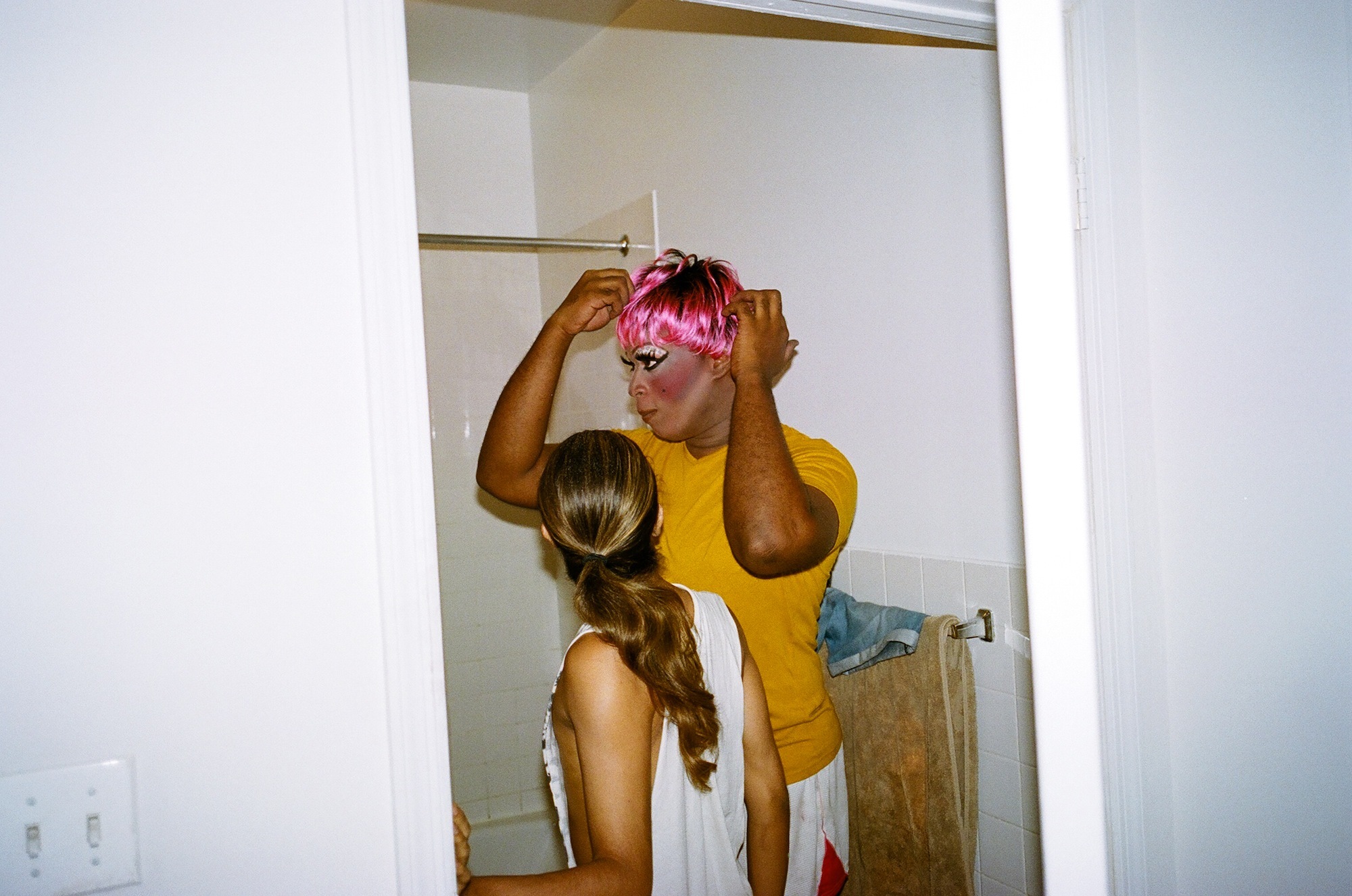
The attitude toward the trans community in shifting, thanks in part to high-profile personalities Laverne Cox and Caitlyn Jenner. Is this felt in Puerto Rico?
Dan Sickles: Puerto Rico passed Bill 238 over two years ago, which prohibits employment discrimination on the basis of gender identity. Not only was the law passed before Laverne was on the cover of Time, but only 19 states have passed similar legislation. Legally, Puerto Rico is ahead of the pack when it comes transgender protections.

Despite this law, the community still faces a ton of discrimination. Can you speak about Ivana Fred and her activism?
AS: The trans liberation movement in Puerto Rico is headed by the Butterflies Trans Foundation featured in the film. It’s largely composed of sex workers who’ve just had it. Ivana Fred is the most well known transsexual on the island and she’s their spokesperson. They interview her on TV and shoot her in swimsuits for these local telenovela gossip magazines. Mostly people are fascinated by her looks and she knows her body gets her a lot of attention, so she’s smart and redirects that attention to the needs of her community.
The trans liberation movement is defined by getting their basic needs met. You see it in Mala Mala: the trans women that show up to the Capitol to testify during hearing for a bill that protects people from being discriminated on the basis of sexual orientation and gender identity are all over 30. You don’t see any of the young girls showing up. That’s because the older ones are realizing that in an ageist society they won’t be able to pay their bills from sex work forever, so a lot of them are starting side jobs and businesses, getting degrees.
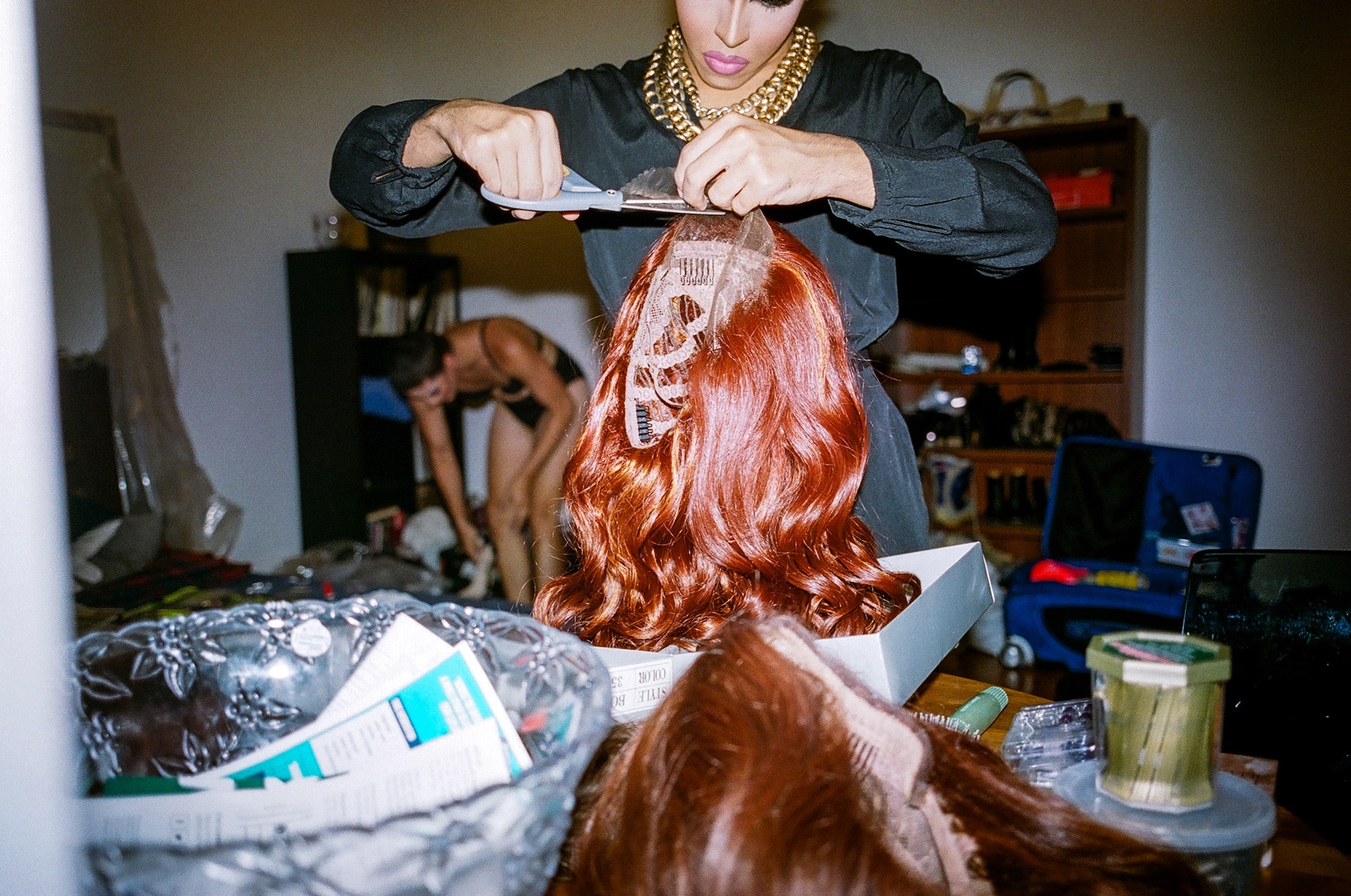
Has there been any backlash to the film?
AS: Not yet. We’re premiering the film in theaters in PR early fall. We had a screening with the Butterflies Trans Foundation at one of member’s backyards. After the movie ended, they all started to talk over each other and argue about the film. We wanted to create something that celebrates them to counteract the daily violence and oppression they face. And while they loved seeing themselves in that light, they were like, “But we still face so much social injustice.” More than backlash, it fueled their anger and reenergized them to figure out the next steps are for the foundation.
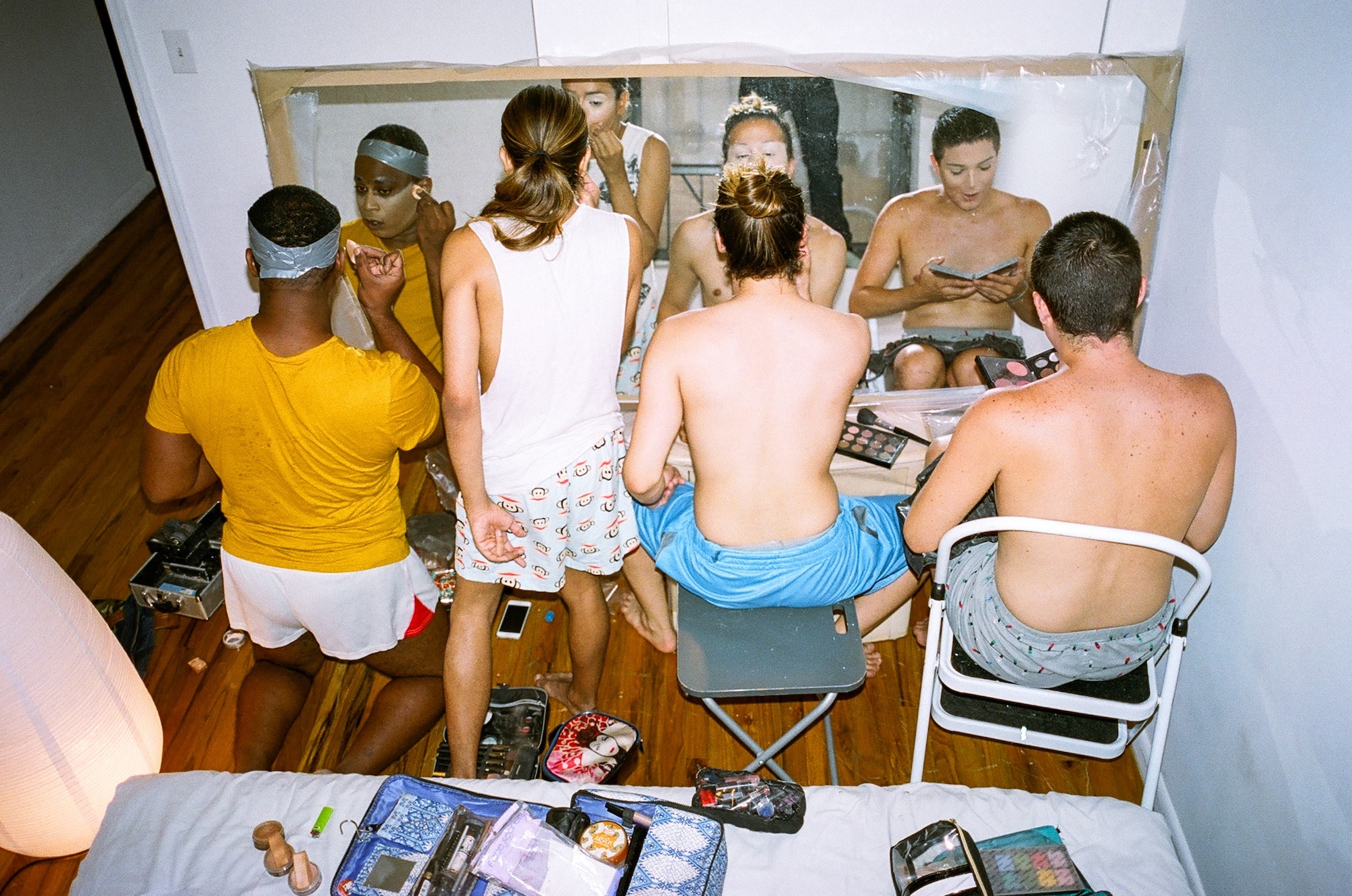
How did you gain such intimate access to these amazing individuals?
AS: Our first trip down, we met Sophia because the woman who cut Dan’s hair put them in touch. Sophia had just moved down to PR to open the island’s biggest gay dance club. I went to high school with Jason aka April Carrion. In high school he was the only guy in the entire school who was comfortable being feminine. We wrote to many trans people on the island via Facebook telling them what we wanted to do and asking if they’d want to talk to us. We met and filmed many people that didn’t fit into the final cut of the movie. We drove out 3 hours to meet a drag queen named Kayra, and when we got there, her friend Samantha had come over to help her with her makeup. And we instantly fell for her.
DS: I found Paxx on Instagram. We had just returned from filming, and I was in Vermont for Christmas with my family. I was looking through our production photos and I noticed “nonoptransboi” kept liking our stills. When I clicked on the handle, Paxx came up, and I was able to get in touch with them through there. I called Antonio immediately and we scheduled another shoot especially to go back to Puerto Rico and meet up with Paxx. It was very lucky, because no one at any of the local outreach centers knew of anyone who was trans-masculine identifying, so Paxx was our needle-in-the-haystack find.

Paxx is the sole trans-male in the film. And many of the current “trans celebrities” are also trans-females. Why do you think trans-males are less visible?
AS: There is an area called Santurce where many of the subjects hang at. Many transwomen do sex work there at night and many drag queens perform at the clubs there. But we couldn’t find an area like this where many transmen would hang out. “Transman” isn’t a term really used or available on the island. Many people present and/or are perceived as “butch lesbians.” Because there are no legal resources to transition from female to male available, most transmen bind and wear baggy clothing, and for most people, the perception is more that they are masculine or tough women. But Paxx identifies as “genderqueer,” which is altogether different than “trans-male.”
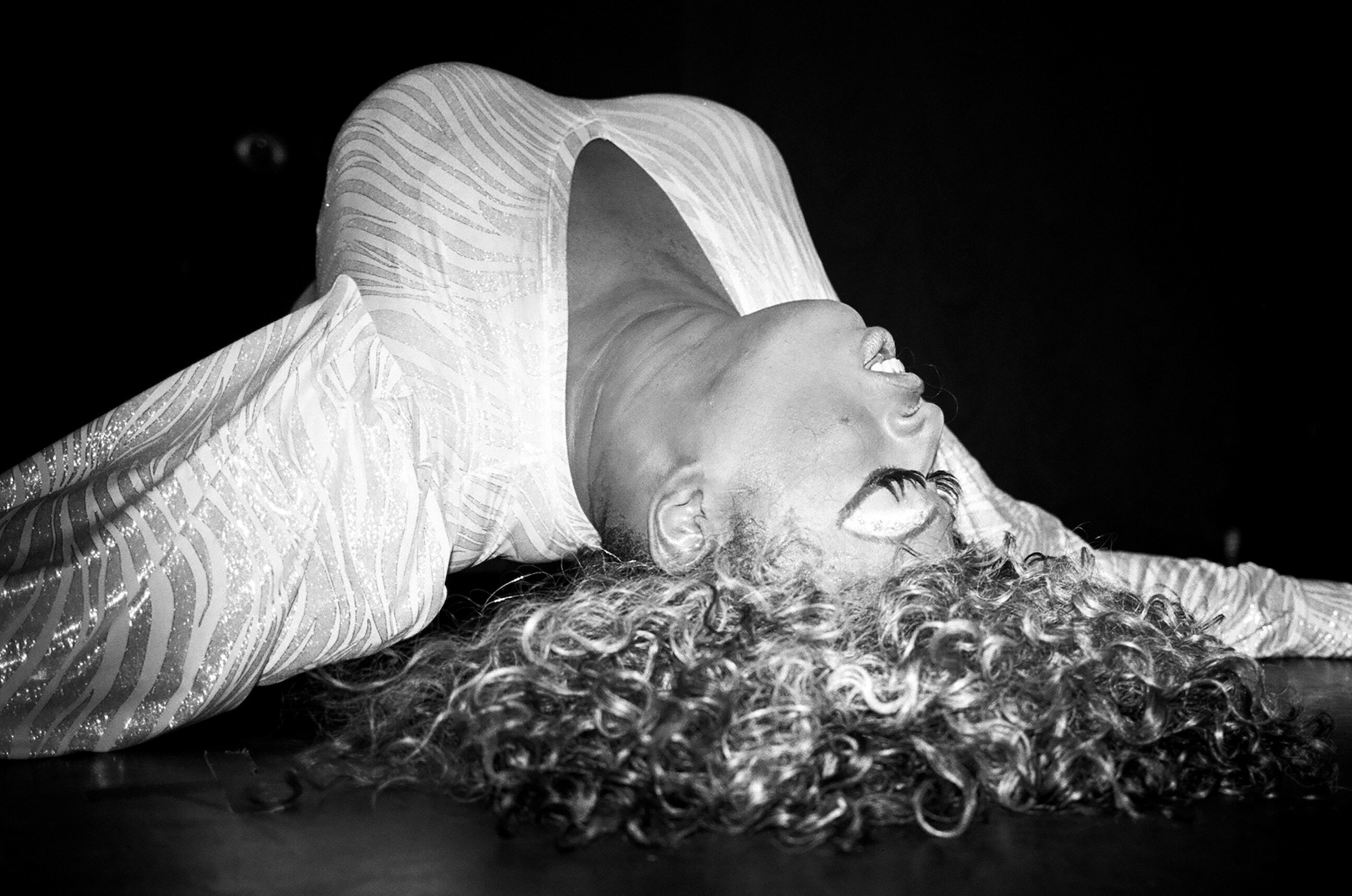
What do you hope people take away from the film?
AS: I hope the trans media landscape matures and expands. That it becomes less about promoting the importance of passing and looking like the idea of a woman, and we start getting into talking about what it can mean to be a woman. And for the trans men, there is also big opportunity to redefine what it means to be a man. Is it about muscles? Strength? Testosterone? Facial hair? I know I never looked up to my dad or older brother and thought, “Oh I want to be like them because of the way they look.” It was about the kind of family member they were and the kind of friend and citizen they chose to be. Being a man and a woman is about essence. It’s defined by the way you navigate the world, your goals, and they way you interact with others. The world’s best plastic surgeon can’t create the perfect essence. It can only come from within.
Mala Mala is currently screening at IFC in New York. Follow @houseofmalamala.
Credits
Text Jane Halpern
Photography Daniel Arnold
